Loose Ends
LOOSE ENDS
Featuring: Kirsten Hassenfeld, Victoria Manganiello, Laura Marsh, Erin McQuarrie, Carolina Ponte, Aiko Tezuka, Ulla-Stina Wikander
June 30 - August 6, 2021
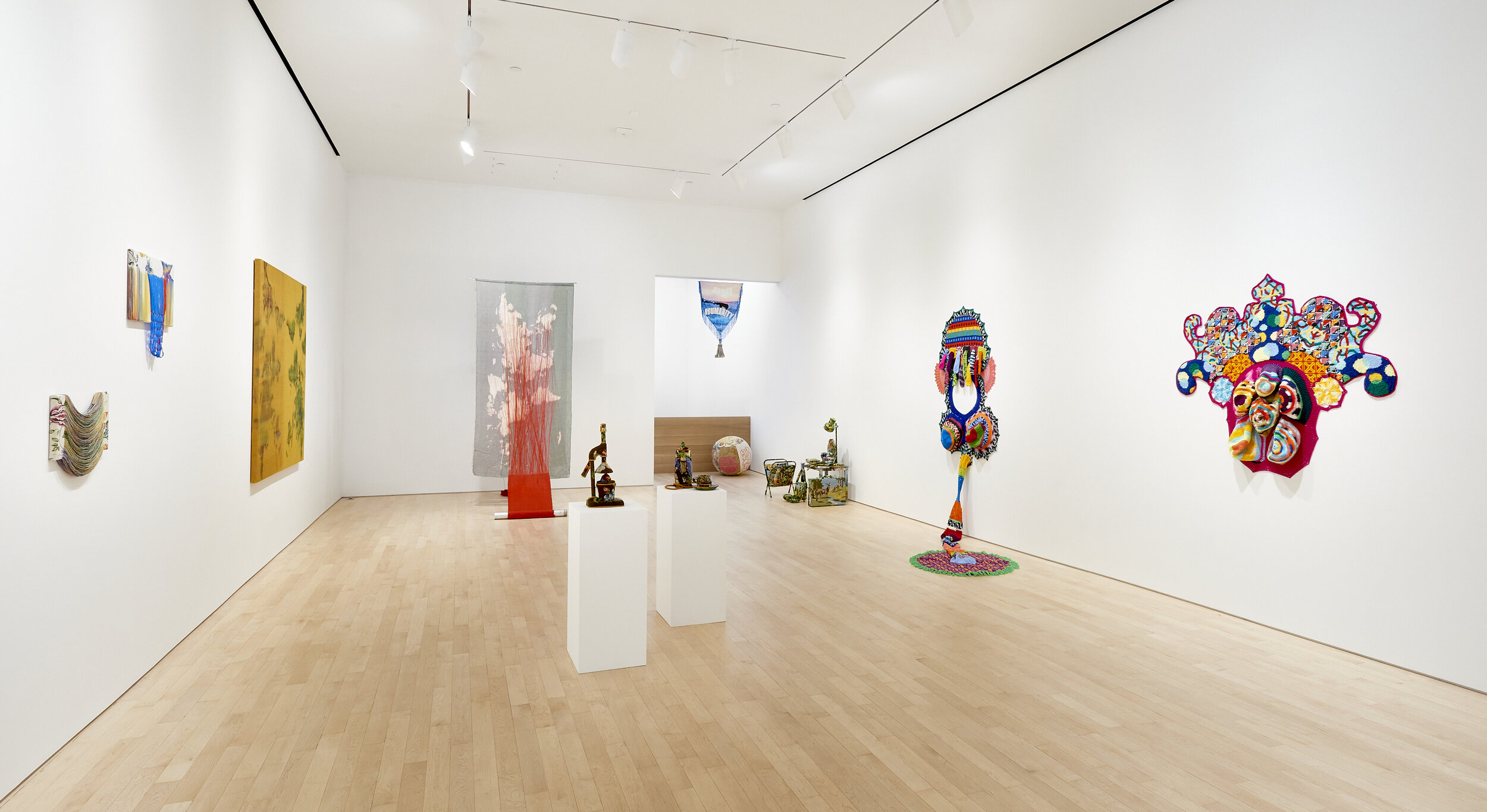
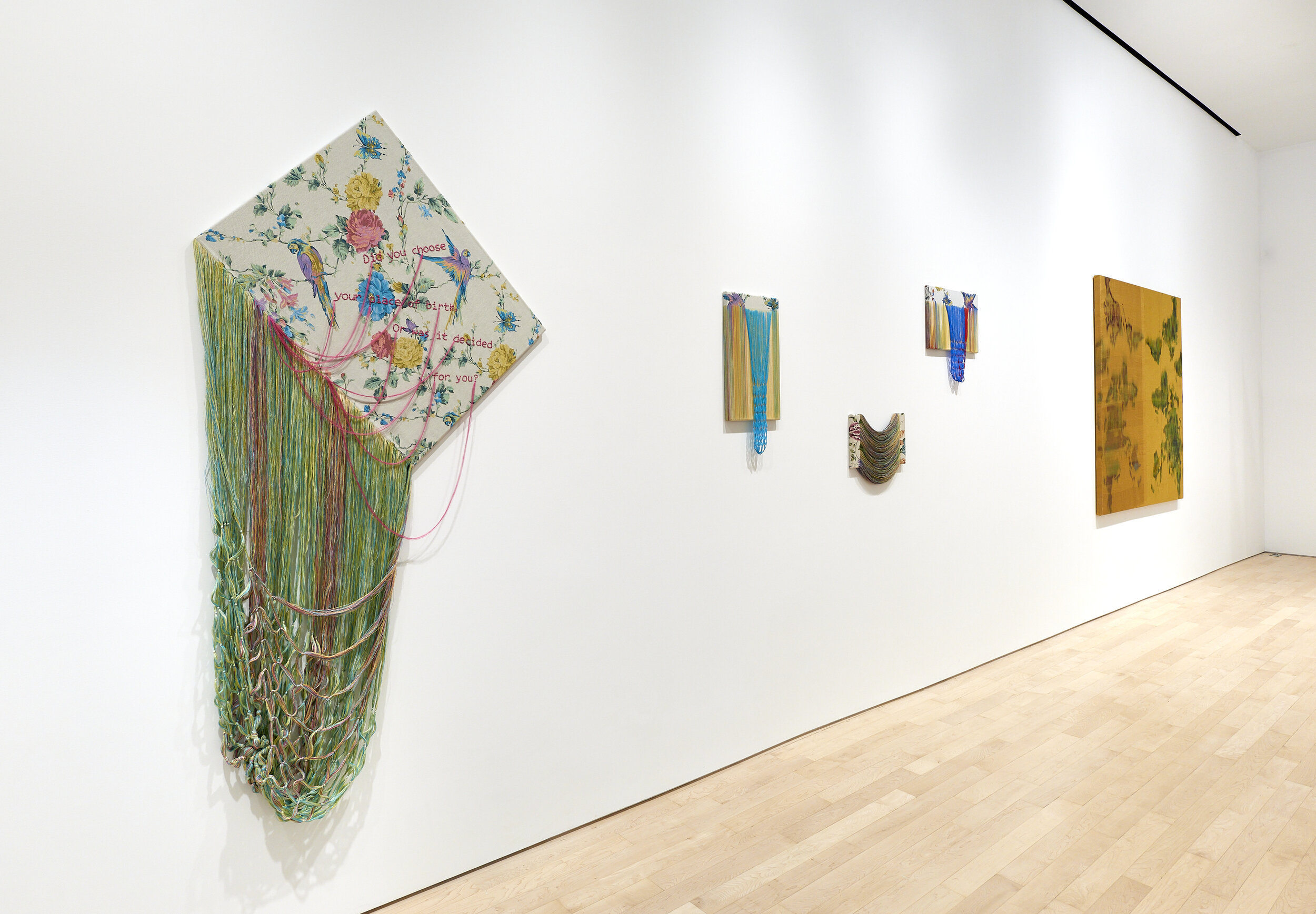
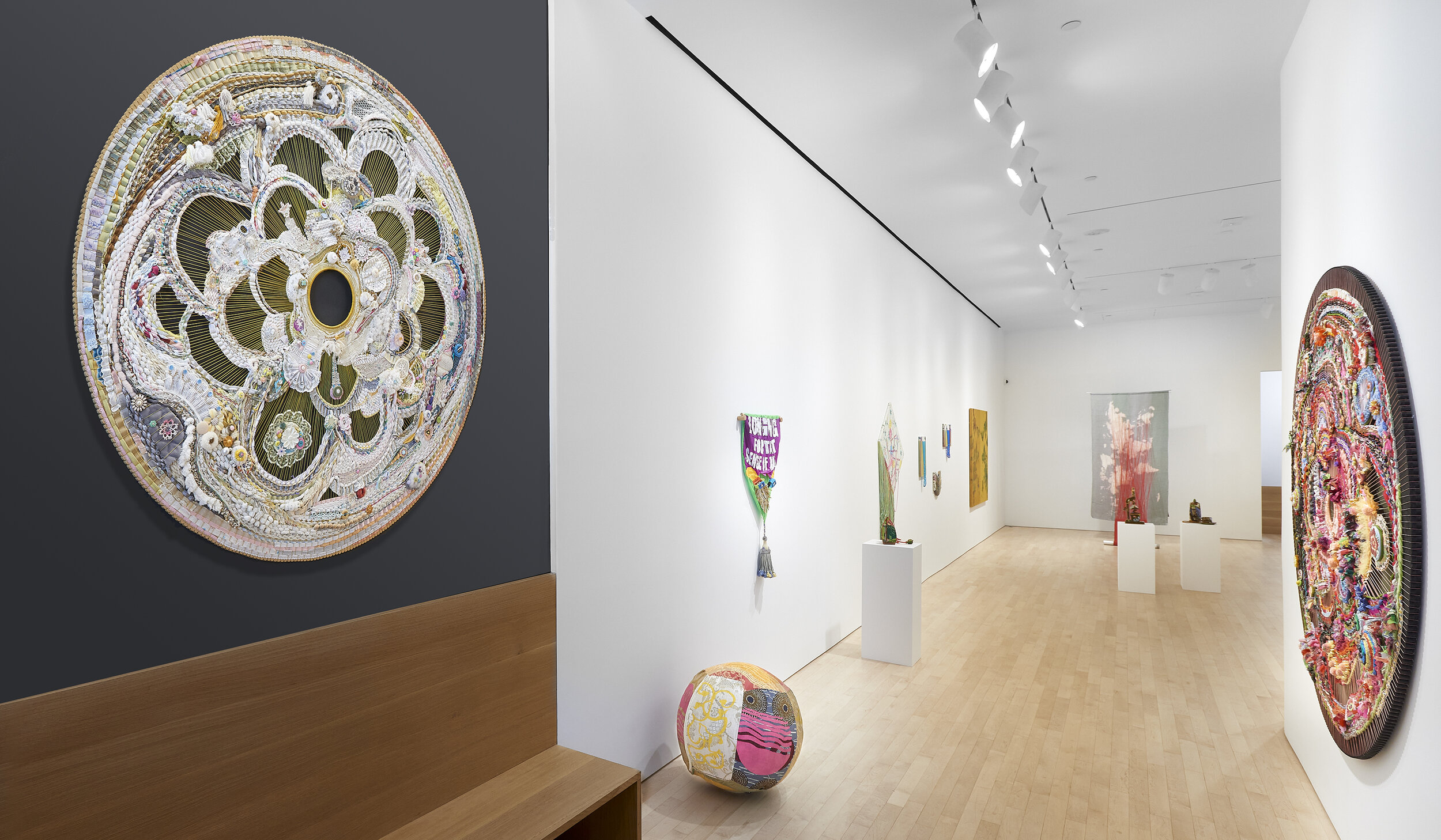
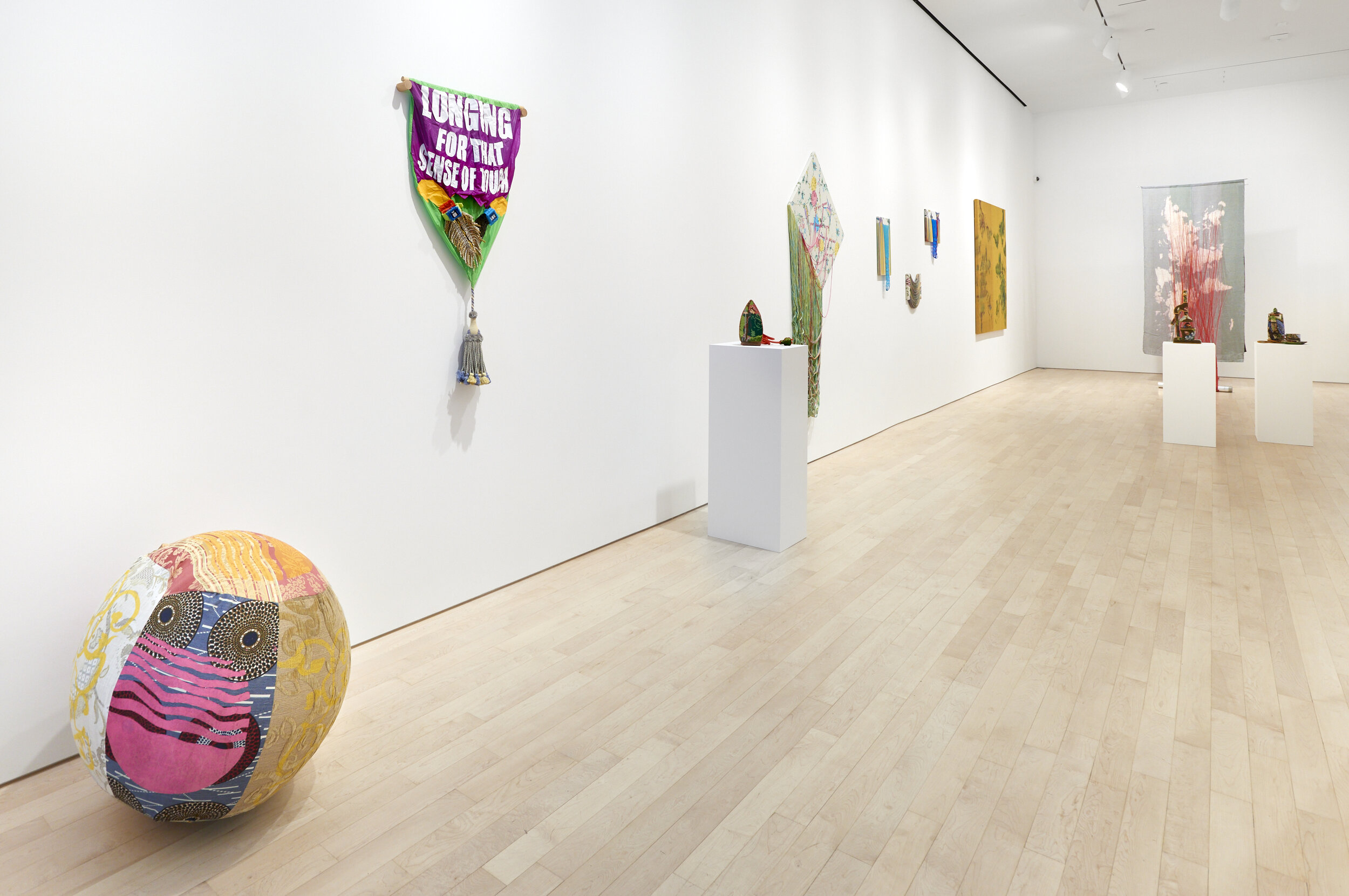
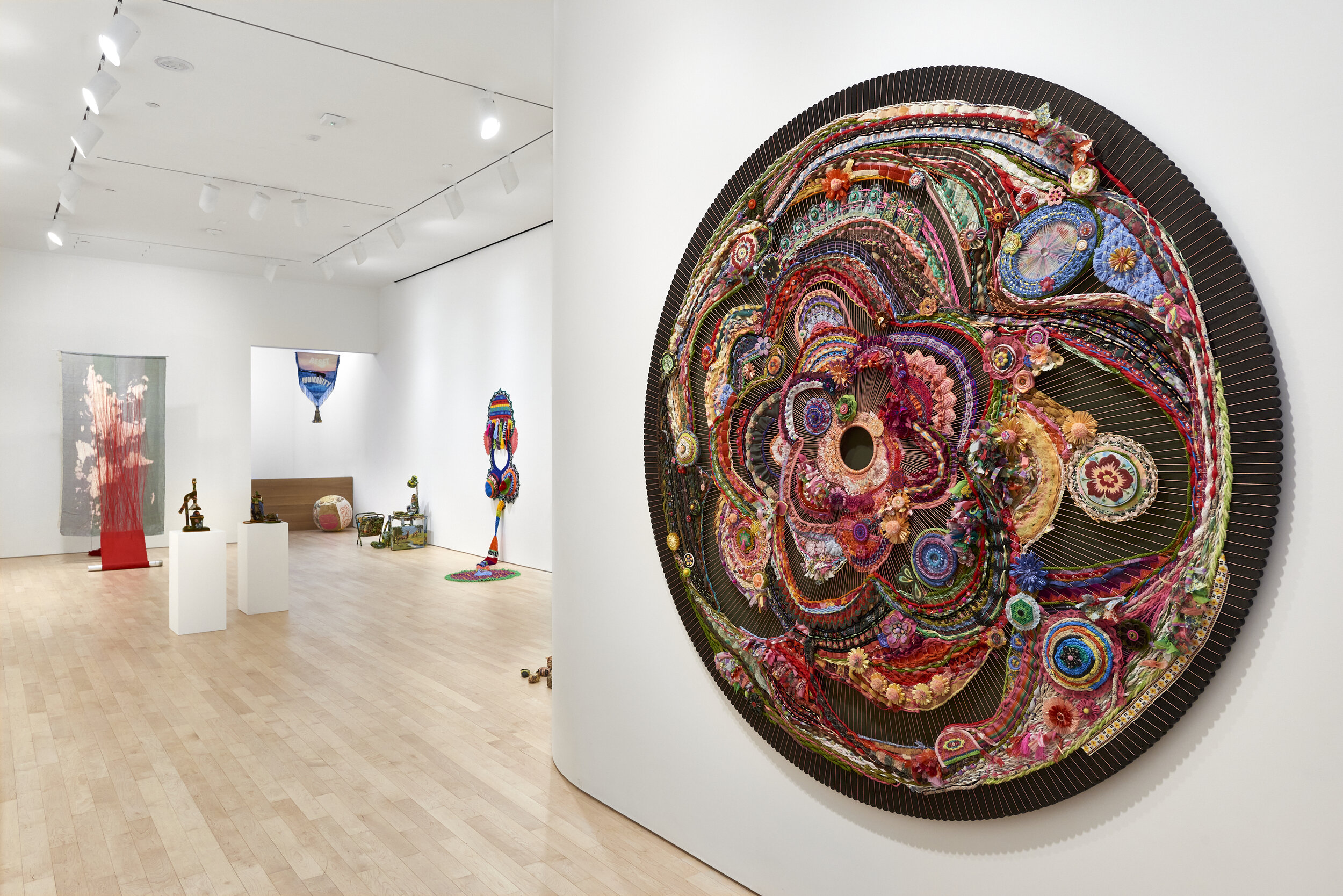
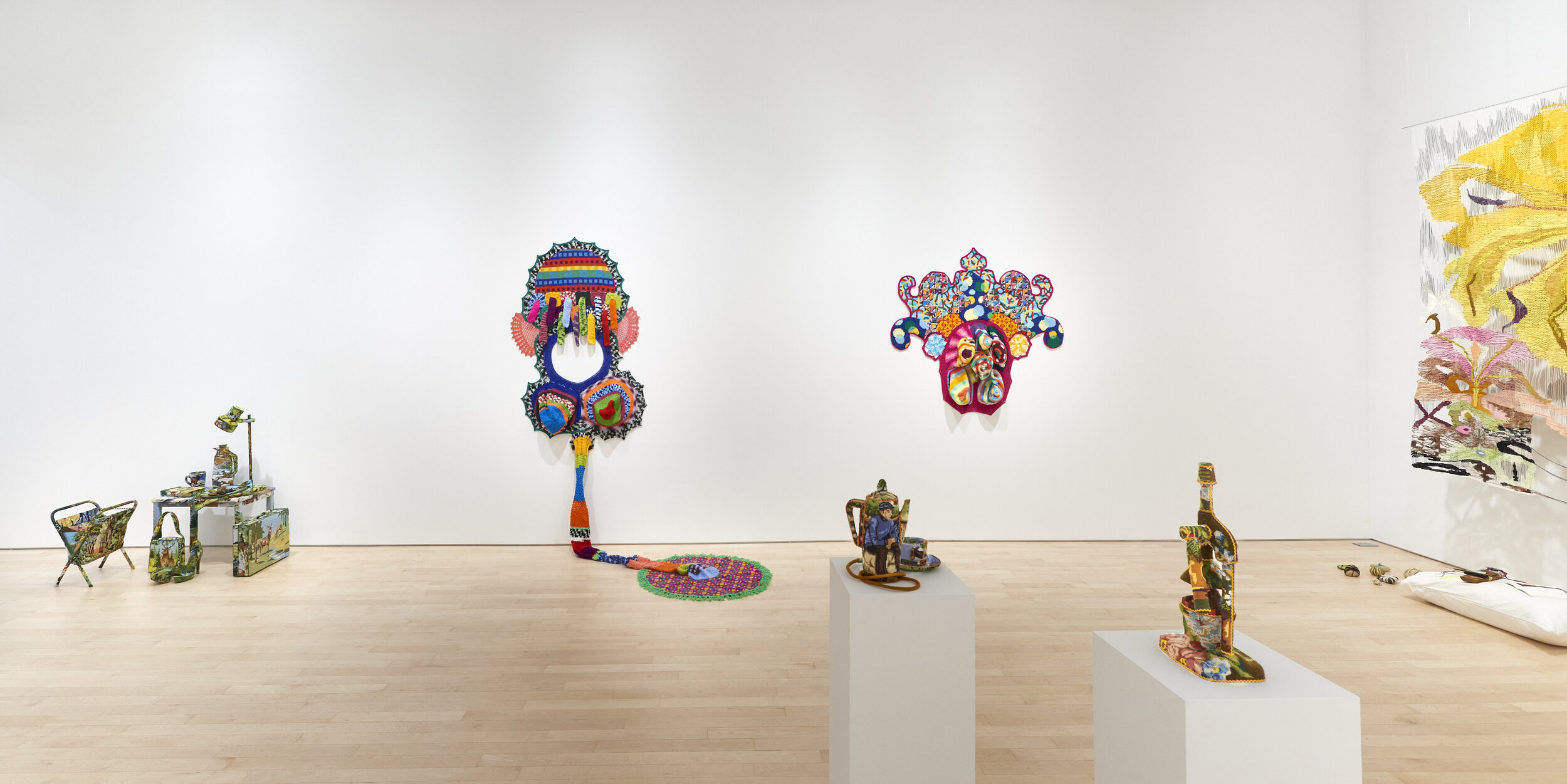
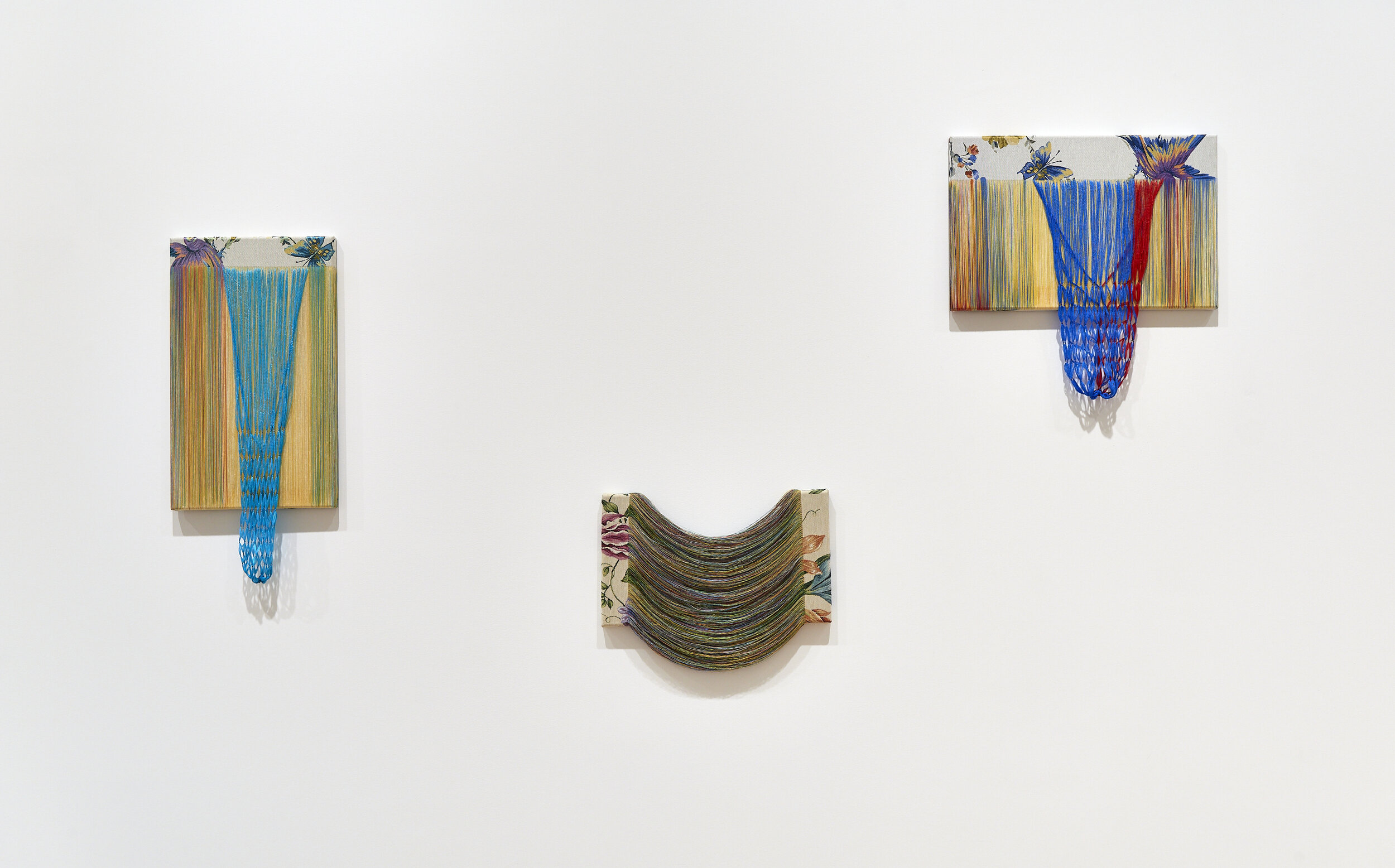
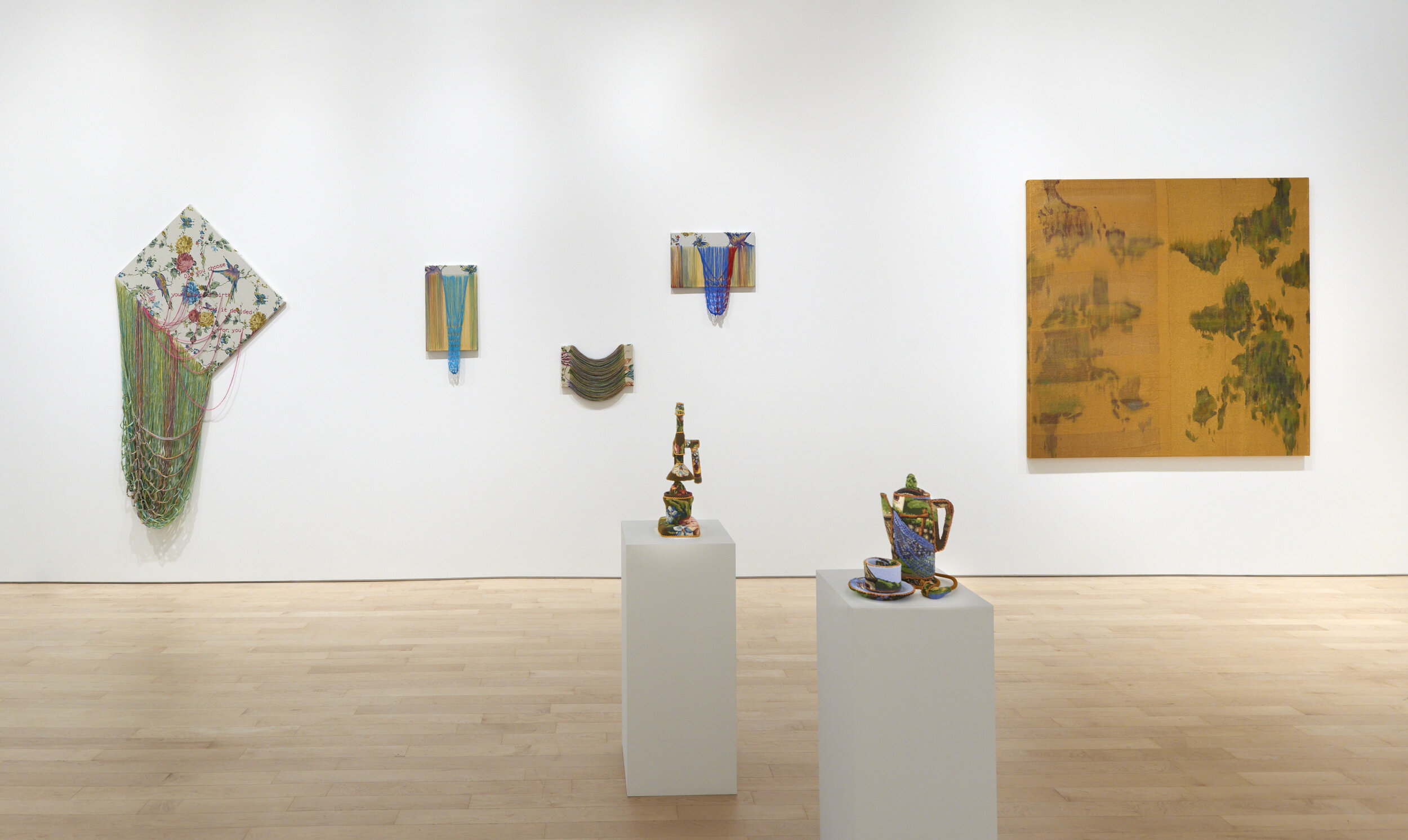
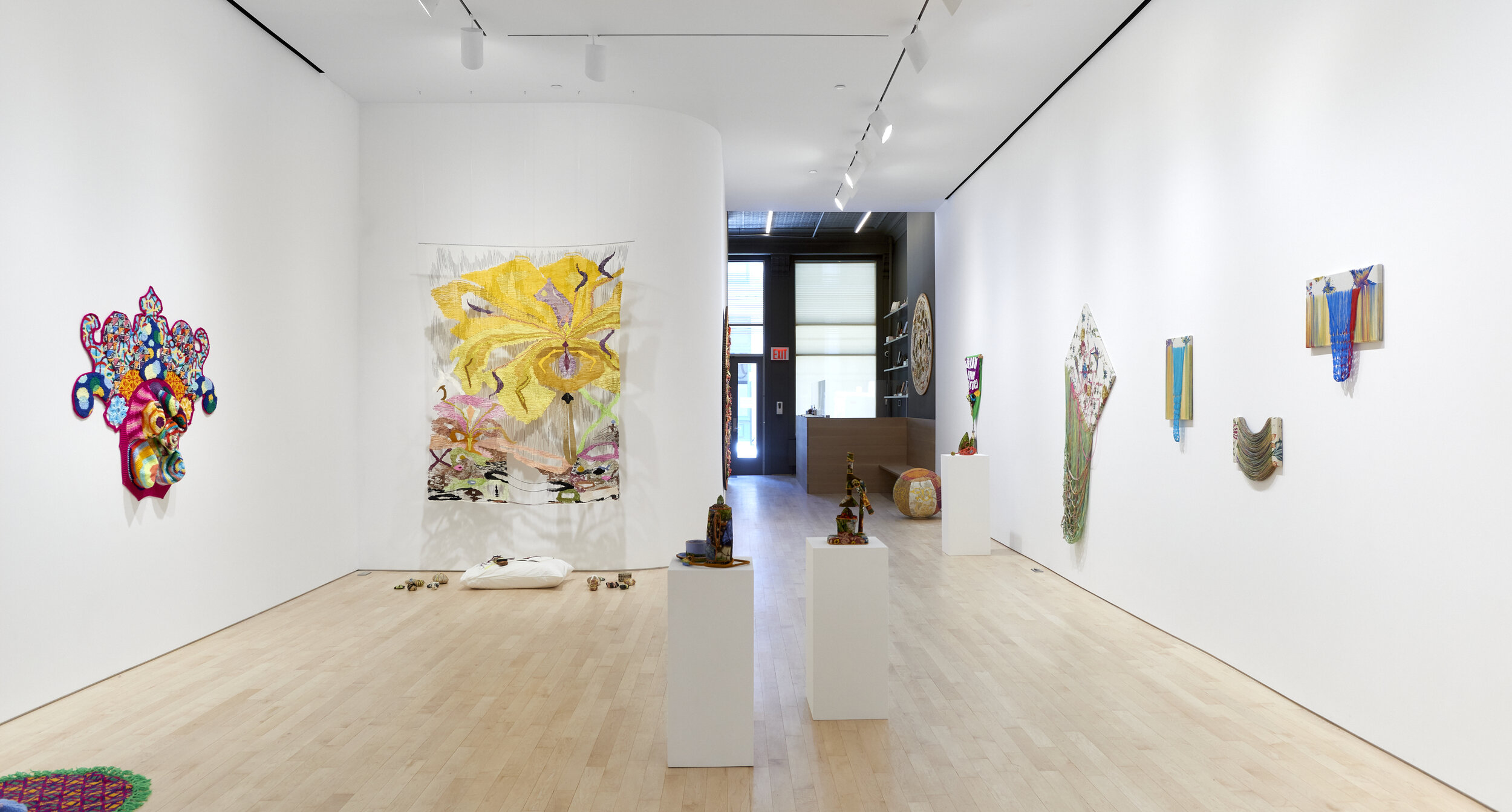
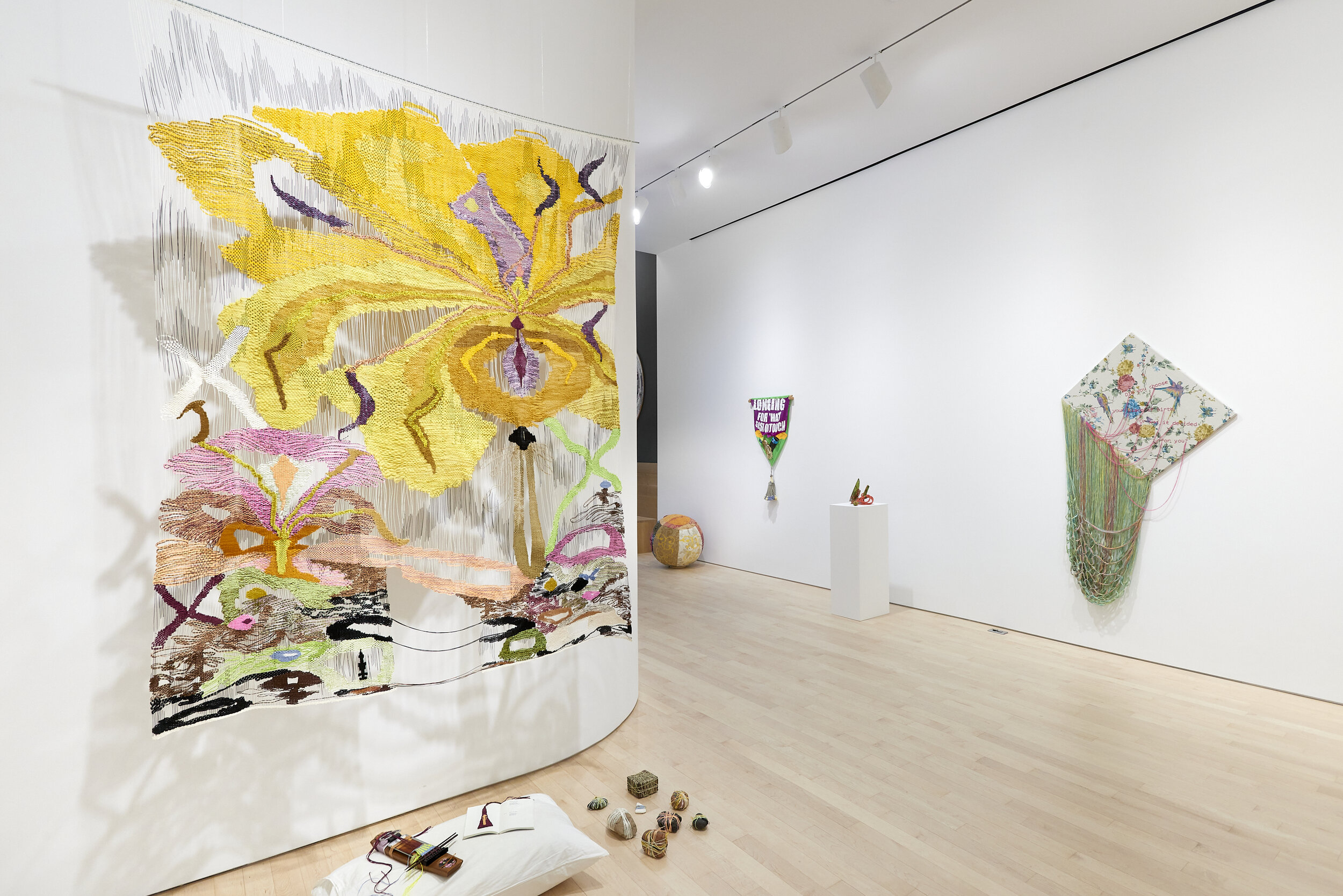
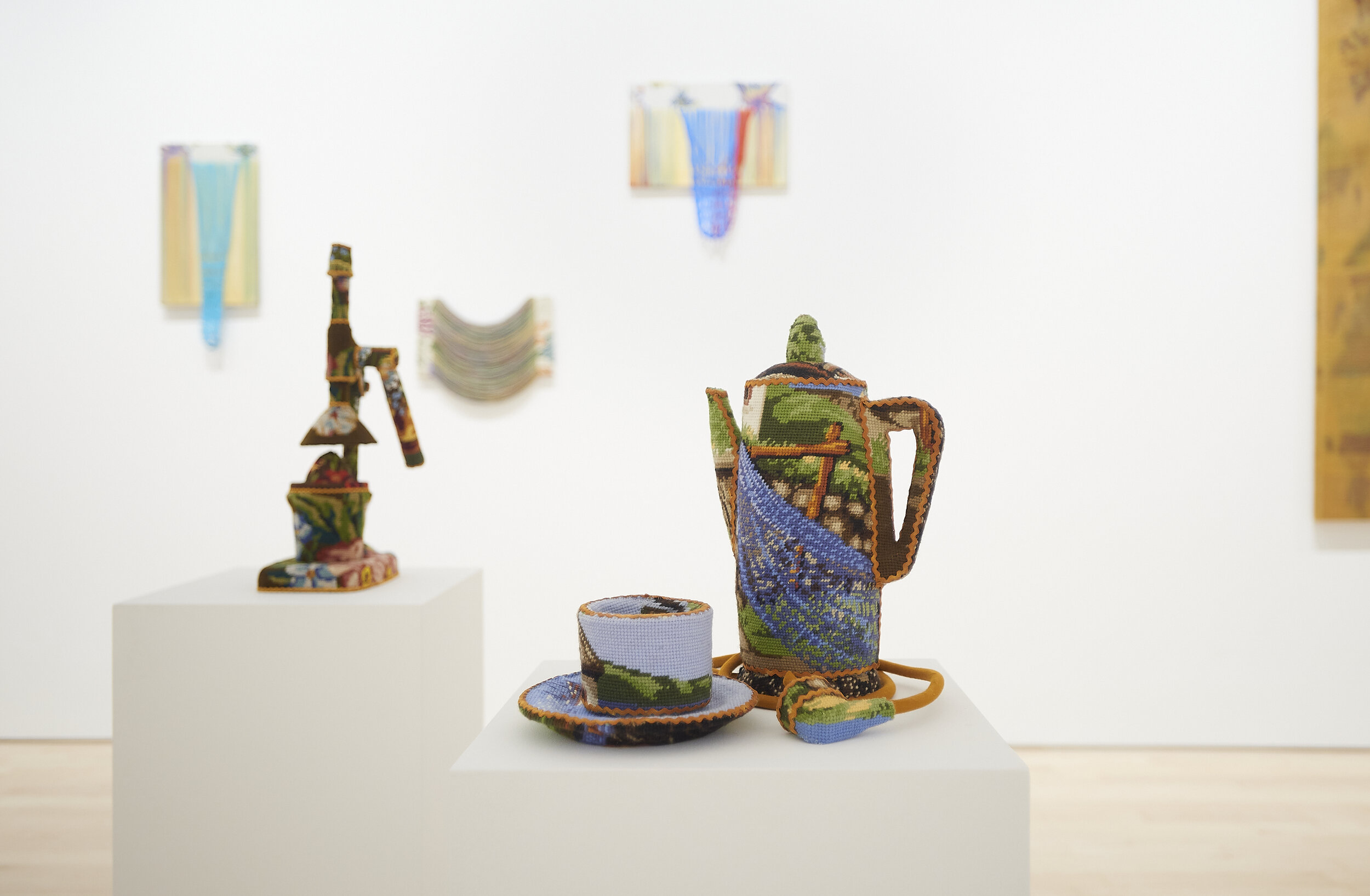
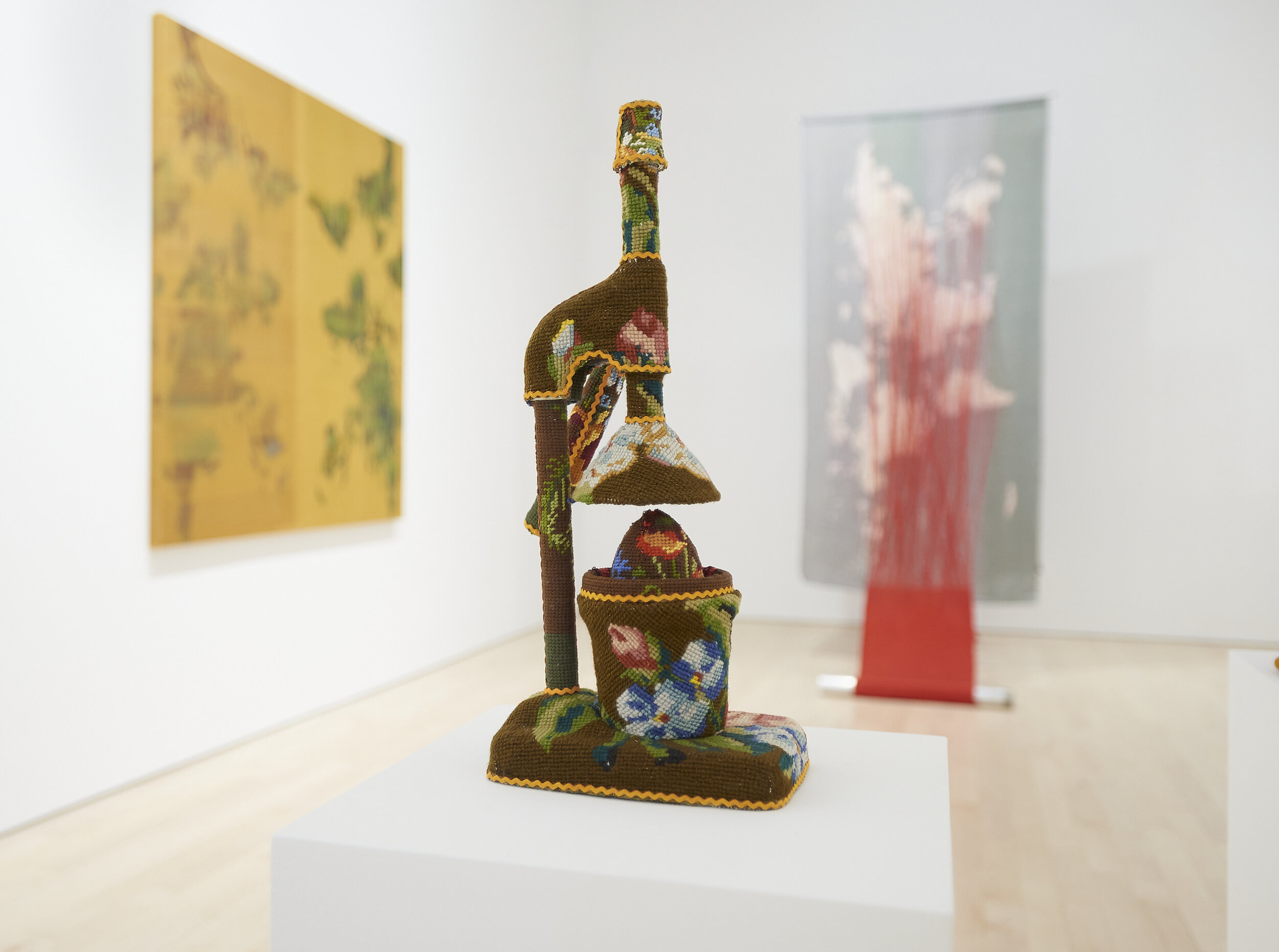
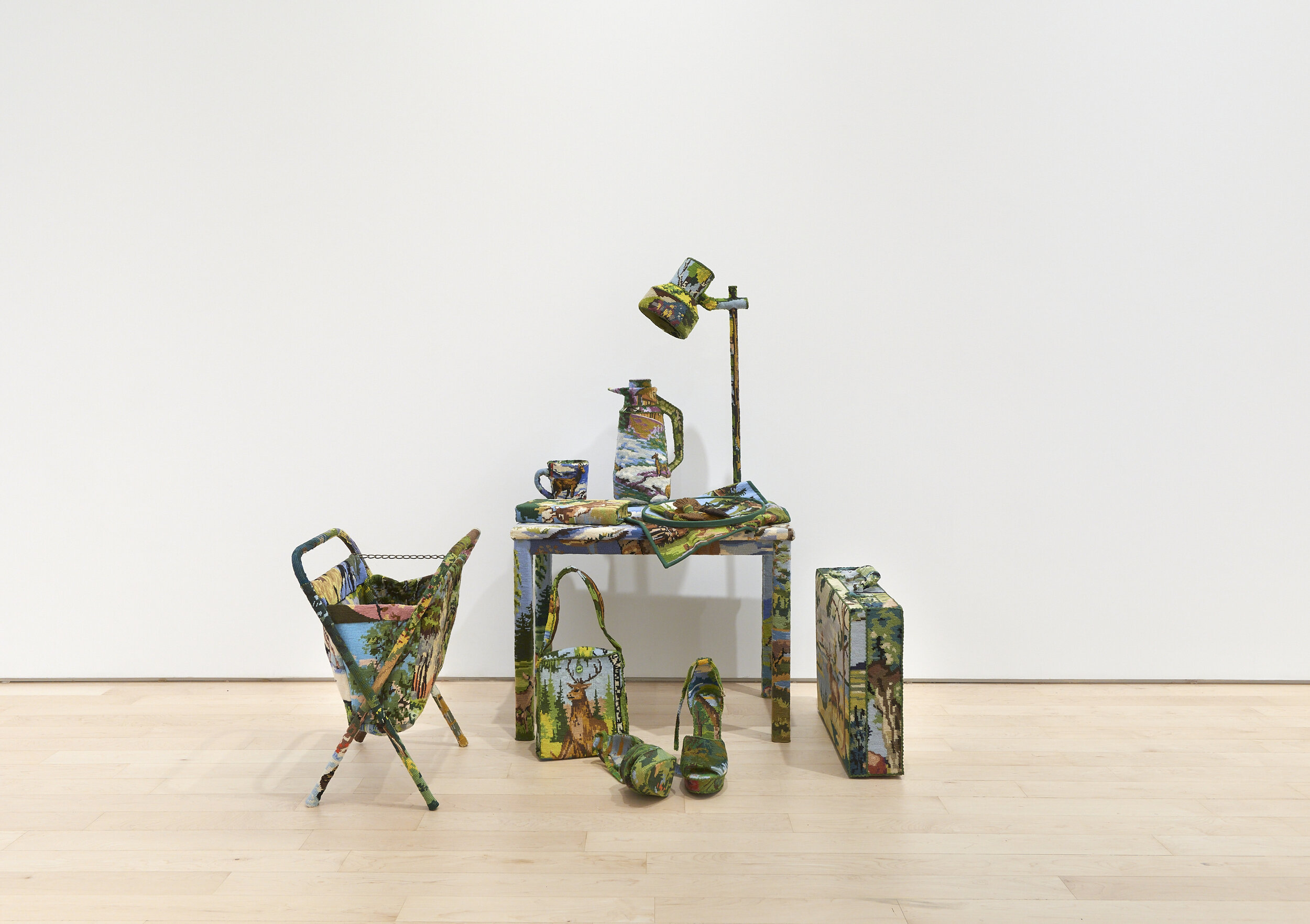
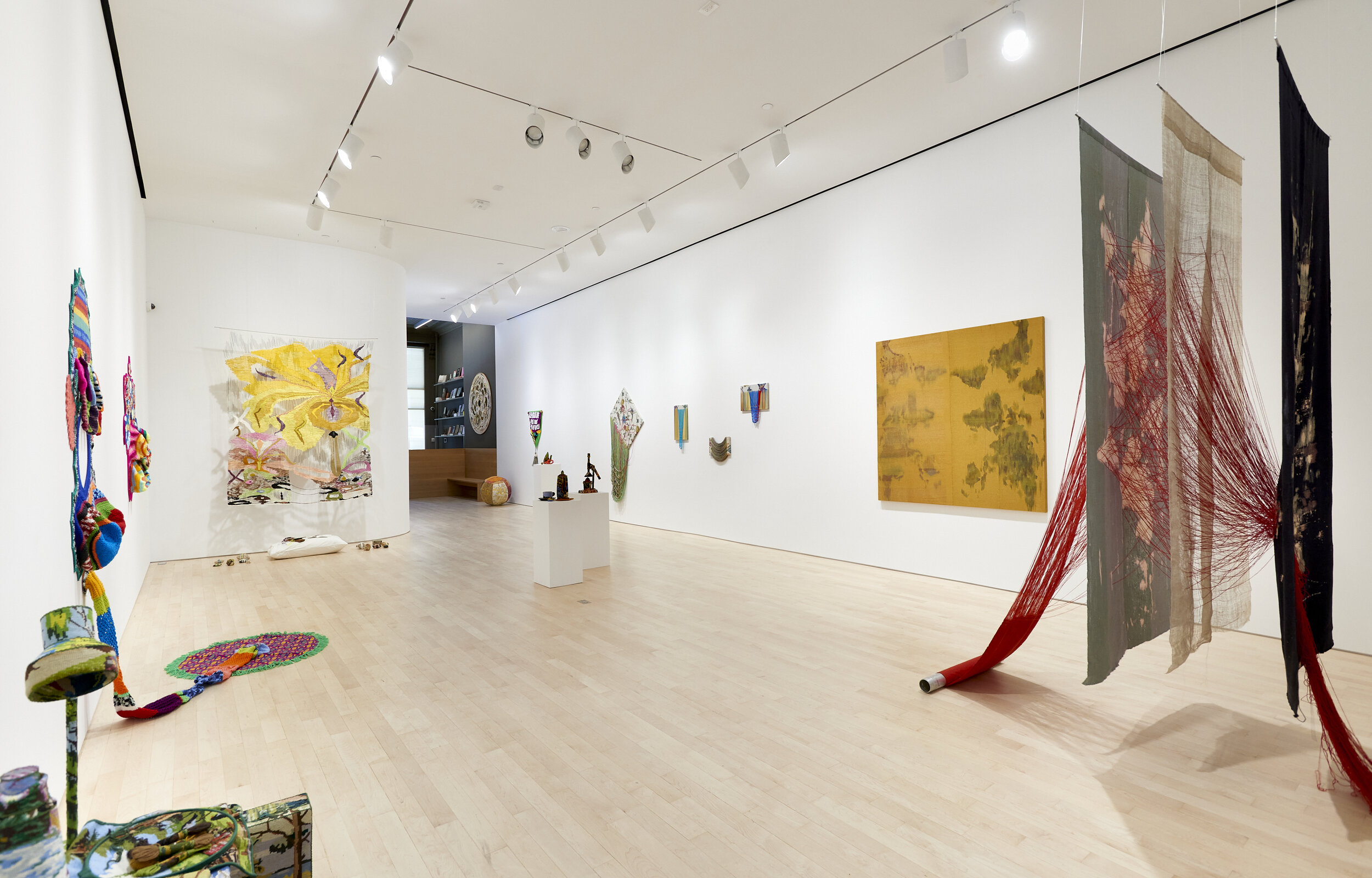
Jane Lombard Gallery is pleased to present Loose Ends, a group exhibition celebrating women working in textiles. The collection, featuring artists Kirsten Hassenfeld, Victoria Manganiello, Laura Marsh, Erin McQuarrie, Carolina Ponte, Aiko Tezuka and Ulla-Stina Wikander, explores the universal applicability of fabric, bridging cultural tradition with contemporary finesse, and emphasizing the medium's constant state of evolution. The exhibition will open on Wednesday, June 30th, from 1 PM - 6 PM, and remain on view through August 6th, 2021.
Textiles tell stories. Rooted in historical processes, they are imbued with ritual, culture, and tradition: interactive archives that can be touched, held, worn, shared, and passed down. There are unique narratives born within the counting of threads, as there is within every stitch, weave, layer, seam, mend, tear, and year of age. The art of weaving traced back to neolithic times; embroidery the 3rd century; knitting the 5th century and decorative needlepoint the 16th century. Fabric forms and structures grew in complexity with the development of new tools. From ancient times to present day, methods of textile production have evolved as we evolve, influencing decoration, clothing and functional design. Fabric, as such, has become intrinsically human.
The featured works from each contributing artist celebrate our entangled relationship with fabric, exploring its material processes as mechanisms for engaging with storytelling and temporal narratives. Erin McQuarrie presents the process of weaving as a form of live art and looms as activatable, interactive sculptures. Her woven works then are artifactual, residues or records of live-action. Aiko Tezuka explores weaving and unraveling as a way to detangle and understand interwoven surfaces; making visible an object’s current state of being, and opening a window to its greater history. Victoria Manganiello investigates our relationship with fabric as one of record, tracking/tracing history and evidencing individual experience through cultural production. Kirsten Hassenfeld employs weaving as a form of repurposing and reclamation, utilizing recycled materials, and re-imagining technical processes to achieve organic structure. Carolina Ponte creates organic forms (tubules, spouts, and nodules) through repetition, referencing cultural designs, patterning, and color to emphasize the temporality of cultural archives. Laura Marsh uses textiles to generate and amplify dialogues around socio-political and humanitarian issues, championing accessibility, inclusivity, and material exchange. Ulla-Stina Wikander uses cross-stitching to transform forgotten household objects with new context, re-dressing artifacts from bygone eras with a colorful, contemporary twist.
Loose Ends celebrates textiles as infinite: decorative and functional, intentional and intuitive, structured and amorphous, masculine and feminine, ageless and ancient, present and vanishing. Within each loose thread lies the potential for a new connection.
Kirsten Hassenfeld moved to New York in 1999 and has been living and working in Brooklyn ever since. She focused on making sculptural works from paper until 2012, when recycled materials and objects became her primary medium. Originally a printmaker, she most recently has turned her attention to large-scale woven wall works. Hassenfeld received a Saint Gaudens Memorial Fellowship in 2014 and has also been a Pollock-Krasner grant recipient, and a grantee of the New York Foundation for the Arts. She has been a studio resident at the Marie Walsh Sharpe Studio, Smack Mellon Studio, and The Fine Arts Work Center in Provincetown. Her work has been shown at such venues as the Brooklyn Museum, the Jewish Museum in New York, and PS1/MoMa.
Victoria Manganiello (b. 1989; Brooklyn, NY) is a textile artist, historian, and educator. Her work has been featured in Hyperallergic, The New York Times, Boulin ArtInfo, Forbes, and Architectural Digest, among others. Victoria has received multiple international, recognized grants, commissions, and residency appointments including from Wave Farm, S&R Foundation, Center for Craft, The Wallstreet Journal, Ars Electronica, and MAD Museum. She has exhibited her work internationally including in Romania, Bulgaria, Taiwan, Croatia, Austria, Iceland, and Italy and throughout the USA including at the Tang Museum, Museum of Art and Design, Indianapolis Museum of Contemporary Art, The Armory Center, and the Queens Museum. She is also an adjunct professor at NYU and Parson’s the New School. Exploring the intersections between materiality, technology, geography, and storytelling, Victoria’s multi-disciplinary and installation work, abstract paintings, and kinetic sculptures are made meticulously with hand-woven textiles using hand-spun yarn and hand-mixed natural and synthetic color dyes alongside mechanical alternatives and modern technologies.
Laura Marsh is a textile artist with a social practice. Her spheres, banners, and installations contain social mottos and humanitarian texts. From two generations of women who sew, Marsh practices a do-it-yourself approach that is accessible and hands-on. Her desire to define spaces that serve as place makers for others expresses the need for more fluid conversations about feminism, gender, and class issues. Marsh regards her practice as multilayered, transformative, and often participatory. Marsh received her MFA from Yale University School of Art and a BFA from the Cleveland Institute of Art. Marsh has exhibited nationally at venues including the Contemporary Art Modern Project, Miami, The Whitney Museum of American Art, Printed Matter, Field Projects, Newman Popiashvili Gallery, and Tilton Gallery in NY. She formerly served as Director of Programming at Oolite Arts and Curator of Exhibitions of the Art and Culture Center/ Hollywood, FL. She is currently consulting for Oolite Arts among other arts organizations in Miami and New York.
Erin McQuarrie (b.1993, Glasgow, Scotland) is a Brooklyn-based textile artist. She graduated from The Glasgow School of Art with a BFA in Textiles in 2018 and recently completed her MFA at Parsons School of Design in 2021. In 2019 she was awarded a UK/US Fulbright scholarship and became a St. Andrew’s Society of The State of NY scholar, awarded by the Carnegie Trust. Her work has received recognition through numerous awards and grants and is held in both private and public collections. McQuarrie was recognized as one of the emerging artists of 2020 by FiberArtNow and recently was selected for the Lenore G. Tawney Scholarship at Peters Valley School of Craft.
Carolina Ponte (Salvador, Brazil, 1981) references the integration of popular ornamental practices with contemporary production. Crochet and drawing are the main supports used by the artist, who also explores the combination of different patterns, colors and rhythms in highly installation-oriented pieces. The artist lives and works in Petrópolis, Rio de Janeiro. Main solo exhibitions: "Balangandã" Zipper Galeria (2018), “Carolina Ponte” MDM Gallery, Paris (2016), “E o silêncio?”, Galeria Enrique Guerrero, Mexico City (2016), “Dusk to dawn… Threads of infinity”, Anima Gallery, Doha (2014), “Filigranas” Zipper Galeria, São Paulo (2013). Main collective exhibitions: “Aquilo que nos une”, Caixa Cultural Rio de Janeiro (2016), “Watercolour”, Textile Museum of Canada (2015), “Lugar Comum”, SESC Quitandinha, Petrópolis (2012), “Pontos de Encontro: Pedro Varela e Carolina Ponte”, Espaço Cultural da Caixa, Salvador, Brasil (2011).
Aiko Tezuka is a Japanese Asian Modern & Contemporary artist who was born in 1976. Their work was featured in numerous exhibitions at key galleries and museums, including the Kunsthalle Mannheim and the Dortmunder Kunstverein e.V.. Aiko Tezuka's first artwork to be offered at auction was Lessons for Restoration (perspective) at SBI Art Auction in 2020. Aiko Tezuka has been featured in articles for the ArtDaily, the ArtLyst and the Telegraph. The most recent article is Material benefits of crafty women - Entangled, Turner Contemporary, Margate, review written by Mark Hudson for the Telegraph in January 2017.
Ulla-Stina Wikander was born in 1957 and raised in Gothenburg. She is currently living in Kullavik/Stockholm, Sweden and has been working as an artist since 1986. For over 15 years she has collected cross stitch embroidery, and today has a big collection with over 100 different designs. These embroideries have been made by women and are often seen as kitsch and regarded pretty worthless. Wikander has mixed feelings for them, sometimes they are very beautiful and she wants to bring them back to life. In 2012 she started to cover ordinary household items from the 70s, like a vacuum cleaner, sewing machine, electric mixer, etc. She finds it interesting to see how these objects transform in a new context; the obsolet, the things we do not want any longer, the old and forgotten things. They become artifacts from a bygone era, disguised, camouflaged and dressed. Wikander gives them a second life and although she cuts the embroideries into pieces, thinks of them as new, and dressed up. She visits flea markets and vintage stores to find cross stitch embroidery and the objects to work with. Some of the small objects, like an iron or a phone take her a day or two to make, but the bigger installations takes weeks to finish. Over the last few years she has been invited to different exhibitions. her objects and installations are also available for purchase.